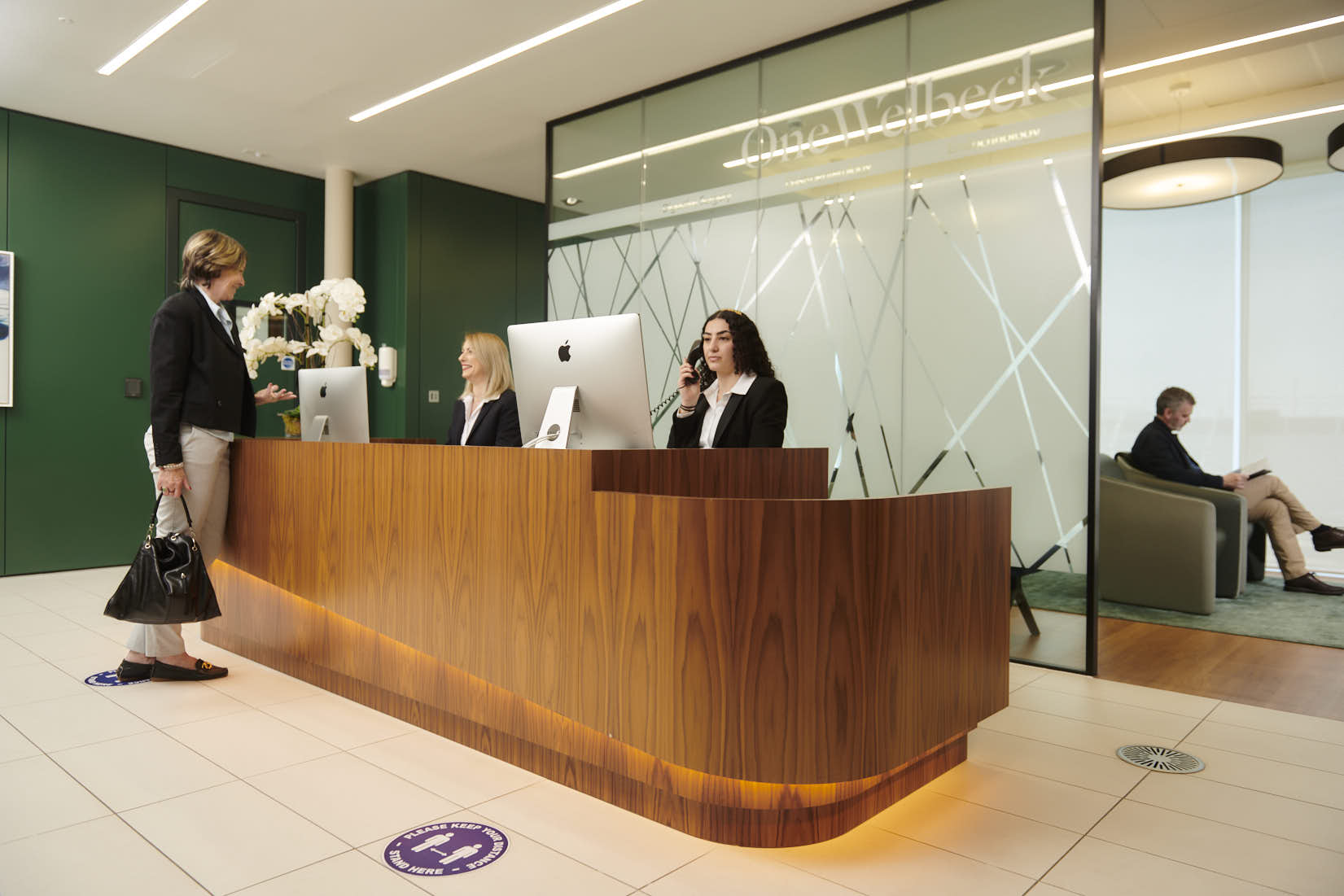Bowel cancer is the fourth most common cancer in the UK. It forms in the bowel’s lining in your large intestine. Although it’s more typical in men, it also affects women. Your risk of bowel cancer also increases as you age, and being 50 and over is one of the most significant risk factors.
Most cases of bowel cancer begin as small clusters of cells called polyps (non-cancerous growths), which form in the bowel’s lining. During a screening test, a gastroenterologist searches for these polyps and can usually remove them to help decrease your risk of developing bowel cancer.
If we catch your bowel cancer early, you’ll have a more favourable prognosis. However, the more advanced the cancer, the more likely your prognosis will be less favourable. So, regular bowel cancer screening tests are vital, as they can detect bowel cancer early, prevent it and save lives.

What are the symptoms of bowel cancer?
The main symptoms of bowel cancer are:
It may seem surprising that we have included tiredness and breathlessness in the symptoms list, but these can suggest anaemia due to blood loss from a bowel tumour.
None of the above symptoms mean you have bowel cancer, but you should always refer to a specialist to get peace of mind, which is what a colonoscopy offers.

Who should have a private bowel cancer screening?
Bowel cancer screening can be beneficial if you:
Are over the age of 45
Have a family history of the disease
Have an inherited bowel condition called familial adenomatous polyposis (FAP)
Have Lynch syndrome
Have serrated polyposis syndrome
Have ulcerative colitis or Crohn’s disease
Already have polyps in your bowel
Bowel cancer screenings at OneWelbeck are highly accurate, allowing you to receive a diagnosis and treatment quickly.

Types of private bowel cancer screening at OneWelbeck
Various screening options are available to help prevent or identify bowel cancer in its earliest stages.
Methods like flexible sigmoidoscopy, virtual colonoscopy, double contrast barium enema, and faecal occult blood tests can detect the presence of cancer cells. Still, a positive result means that further investigations are needed. So, while these screening techniques are valuable, they are often inconclusive.
Flexible sigmoidoscopy
A flexible sigmoidoscopy is a minimally invasive procedure that examines the lower part of your large intestine. A thin, flexible tube with a camera on the end is inserted into your rectum and guided into your colon. The specialist can then identify any abnormalities.
As this screening only examines the lower part of your large intestine, the procedure is over much quicker and can feel less invasive.
You may benefit from a flexible sigmoidoscopy if you are over 45 and have risk factors for colon cancer, such as a family history of the disease.
Virtual colonoscopy
A virtual colonoscopy is a non-invasive imaging technique that can examine your colon and rectum for signs of bowel cancer. During this screening, a CT scanner will create 3D images of your colon. No camera is inserted into your rectum as the machine uses X-rays to generate images instead.
However, if abnormalities are detected, you may still need a colonoscopy afterwards for further examination and treatment.

Colonoscopies: the gold standard for private bowel cancer screening
A colonoscopy is considered the gold standard in bowel cancer screening. Research has shown the superiority of a colonoscopy over other screening tests, with one bowel cancer incidence prevented for every 28 colonoscopies performed.
A thorough colonoscopy offers:
Prevention: Your doctor can give you an ‘all-clear’ on the day if they find no polyps or adenomas (benign tumours) during the colonoscopy.
Treatment: Your doctor can usually remove small polyps during the colonoscopy so they will not develop into cancer.
Diagnosis: If your doctor finds any suspicious growths, they will take a biopsy sample and send this immediately to the lab for further testing.
Regular colonoscopies should begin at 45 for people with an average risk of developing bowel cancer. If you have a family history of polyps or bowel cancer, then doctors may advise you to get your first colonoscopy at age 40 or earlier.
Your medical history and risk factors will determine the frequency of screening tests. After your first bowel cancer screening, it should be repeated every one to ten years.
At OneWelbeck Digestive Health, our highly experienced bowel cancer specialists perform various procedures within comfortable settings. They can advise you on which screening methods are right for you.
Alternatives to imaging screening tests: faecal immunochemical test (FIT)
While a colonoscopy is the gold standard for preventative screening, we understand that some might be hesitant about booking this procedure. The good news is that FITs are an alternative, at-home option suitable for symptomatic and asymptomatic patients.
Blood in your stool may indicate abnormalities in the bowel. So, specialists can identify possible signs of bowel disease in your stool sample. If a FIT result is positive, we will refer you for further investigation by colonoscopy.
Our at-home FIT kit costs £60. You can order one by calling 020 3653 2009 or emailing clinical.digestivehealth@onewelbeck.com.

How much does private bowel screening cost?
At OneWelbeck, a private colonoscopy price starts from £2,090. We accept private medical insurance and self-funding patients.
Our dedicated bookings team can provide more information on how much your private bowel cancer screening will cost.
Meet one of our Private Bowel Screening experts










